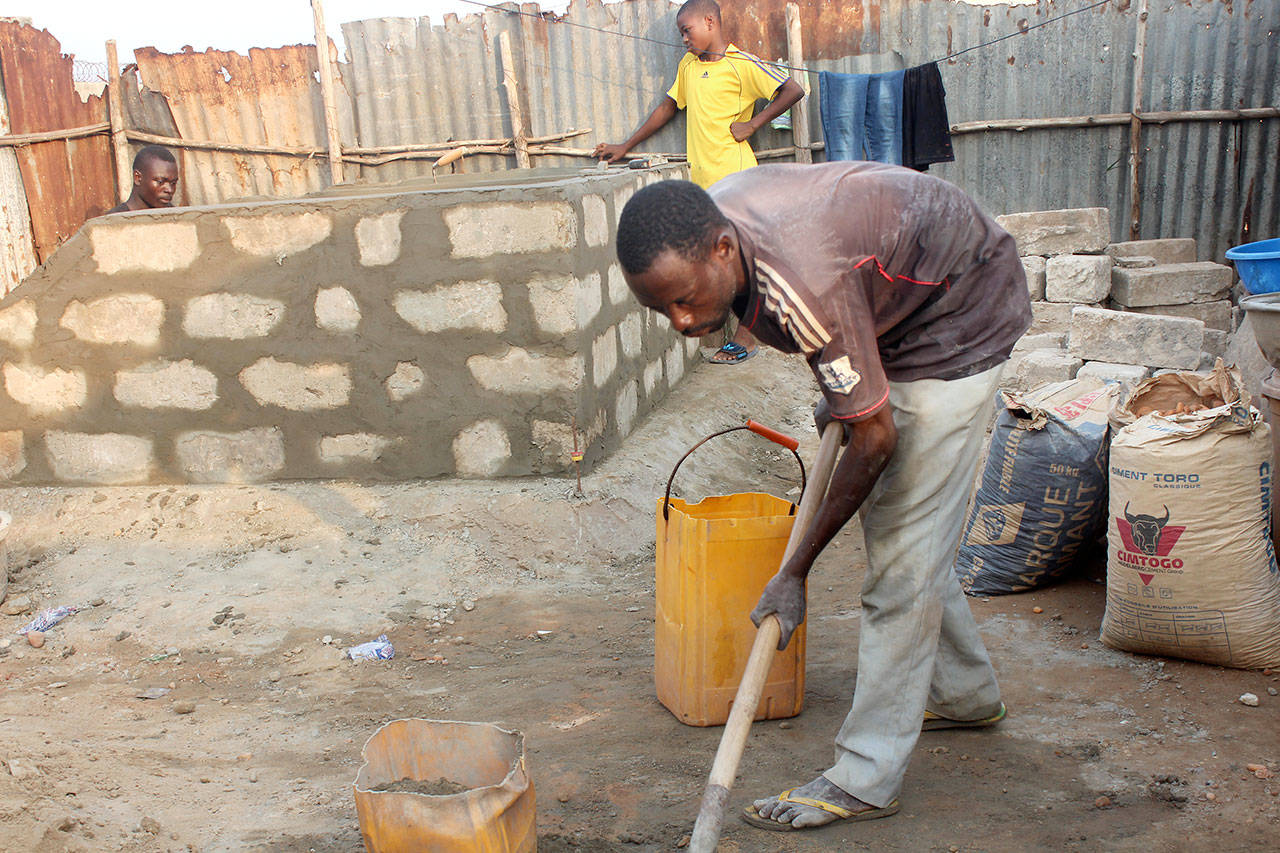PORT ANGELES — In hopes of spreading awareness about the need for Nor’Wester Rotary’s toilet-building program in a West-African country, the group asked the project leader to visit Port Angeles.
After spending five month’s income — more than $400 — to apply twice for a travel visa to the United States, Bedi Taouvik Boukari, who heads the program in his village in Togo, has been denied travel by the U.S. Embassy in Lome, Togo.
“We’re going to keep trying,” said Doc Reiss, who coordinated efforts to provide compost toilets for families living in the village of Zogbedgi, Togo, as part of the Dignity Toilets for Togo program.
Boukari and his crew in Zogbedgi have built 12 toilets so far and are working on their 13th.
Reiss said there are 21 others in the village on the wait list for their own toilet.
Reiss, a past president of Nor’Wester Rotary, sent a letter to to David Gilmour, the U.S. ambassador to Togo, asking him to help Boukari secure a visa.
“We have invited Taouvik to come and speak to our club, to help us fundraise by visiting other clubs and organizations in Western Washington and be available to the press and media for interviews,” Reiss wrote. “Taouvik applied for a visa and had all his required documents including letters of invitation and support during his visit.
“He was turned down.”
Reiss said that on paper, Boukari does not appear to be a good candidate for a travel visa. Under U.S. immigration law, Boukari must prove that he will return to his home country before the visa is granted.
Boukari is poor and single, young and doesn’t own property.
Boukari wrote in an email that he had wanted to visit Port Angeles and return back to Togo to tell his friends and parents about his experience.
“I don’t give up,” said Boukari, who taught himself English. “I have a dream to realize [and] it is always not easy for everybody to realize dreams.”
He said his interview with the consulate lasted about two minutes.
“He didn’t even explain [to] me why he refused my visa,” he said. “I’m so disappointed and sad.”
Reiss said earlier this month he was surprised when a letter from U.S. Rep. Derek Kilmer’s office recommending a three-week travel visa for Boukari didn’t help the application.
“The way immigration is currently set is that if you can’t show you have a strong need to return … they won’t let you come here,” Reiss said.
In an email to Kilmer’s office, a consulate assistant wrote that it was up to Boukari to prove it on his own that he would return and that support from others isn’t considered.
“We understand the interest of Mr. Reiss … for Mr. Boukari to visit the United States and we take seriously the assurances you offer on [his] behalf,” the assistant wrote in the email. “However, it is the applicant alone who must establish eligibility for a visa.”
The Dignity Toilets for Togo project started more than two years ago after Boukari made a comment to Reiss, his pen pal, about being tired of having to go in the bushes.
Villagers seeking seclusion must wander farther and farther way from the town center to find privacy, Reiss has said. Some women have been raped in the bushes.
Wanting to make a difference, Reiss coordinated with Boukari — who helped discovered the government designs for the compost toilet structure — to build the facility on Boukari’s family property.
Reiss originally put up $2,000 of his own money to support the project. Since December, the community has donated about $4,000.
“I’m grateful the community is involved,” Reiss said. “It doesn’t take a whole lot to make a difference in someone’s life.”
________
Reporter Jesse Major can be reached at 360-452-2345, ext. 56250, or at jmajor@peninsuladailynews.com.

